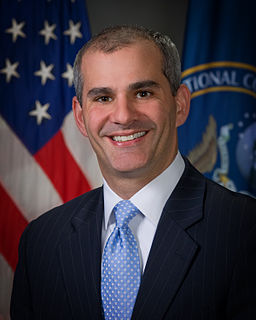A Quote by Julian Sanchez
But even if you thought they were adequate at the time, when you're collecting data in bulk-you've got it. The data lasts until you delete it; the rules only last until you decide to change them, and change them in secret.
Related Quotes
If Senator Rubio were doing his job and in Congress more, he might know that the program 'phone records of a potential terrorist cause' continues. It's been ongoing for the last six months. So the Paris tragedy, this tragedy happened while we were still doing bulk collection, all bulk collection. Also in France, they have a program a thousand-fold more invasive, collecting all of the data of all of the French.
One of the myths about the Internet of Things is that companies have all the data they need, but their real challenge is making sense of it. In reality, the cost of collecting some kinds of data remains too high, the quality of the data isn't always good enough, and it remains difficult to integrate multiple data sources.
There are those of us who are always about to live. We are waiting until things change, until there is more time, until we are less tired, until we get a promotion, until we settle down / until, until, until. It always seems as if there is some major event that must occur in our lives before we begin living.
Scientific data are not taken for museum purposes; they are taken as a basis for doing something. If nothing is to be done with the data, then there is no use in collecting any. The ultimate purpose of taking data is to provide a basis for action or a recommendation for action. The step intermediate between the collection of data and the action is prediction.
The principal problem is that textual data and material remains are often incomplete and sometimes lack adequate context, in order to know precisely how they correlate. Sometimes all we can say is that the textual data and the material remains are probably related but how exactly can't be said until additional discoveries are made.
In my view, our approach to global warming exemplifies everything that is wrong with our approach to the environment. We are basing our decisions on speculation, not evidence. Proponents are pressing their views with more PR than scientific data. Indeed, we have allowed the whole issue to be politicized-red vs blue, Republican vs Democrat. This is in my view absurd. Data aren't political. Data are data. Politics leads you in the direction of a belief. Data, if you follow them, lead you to truth.






































